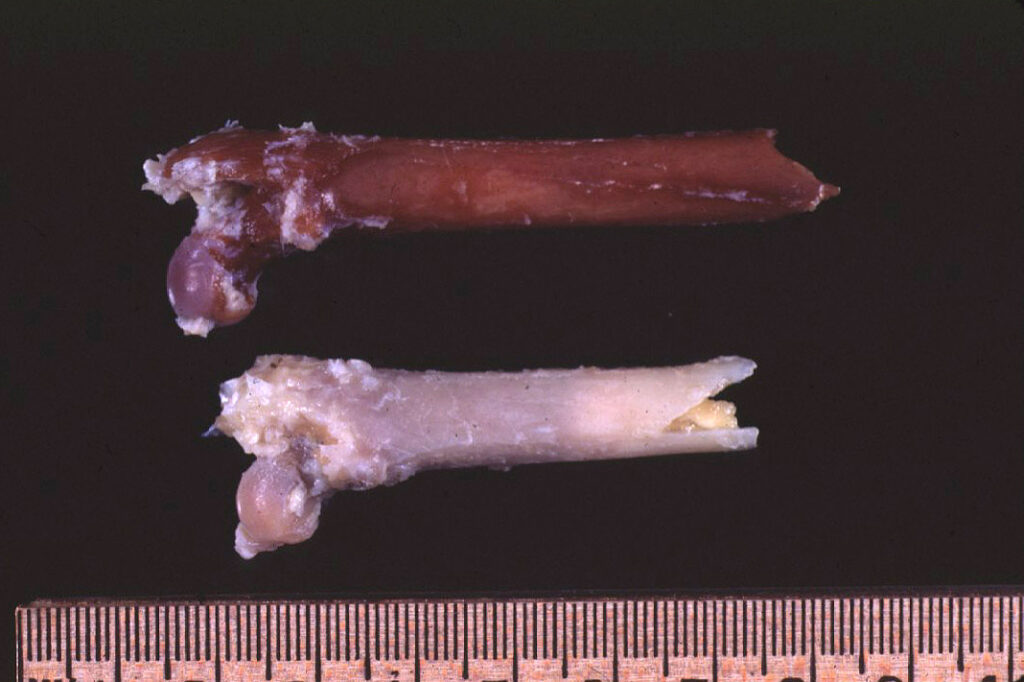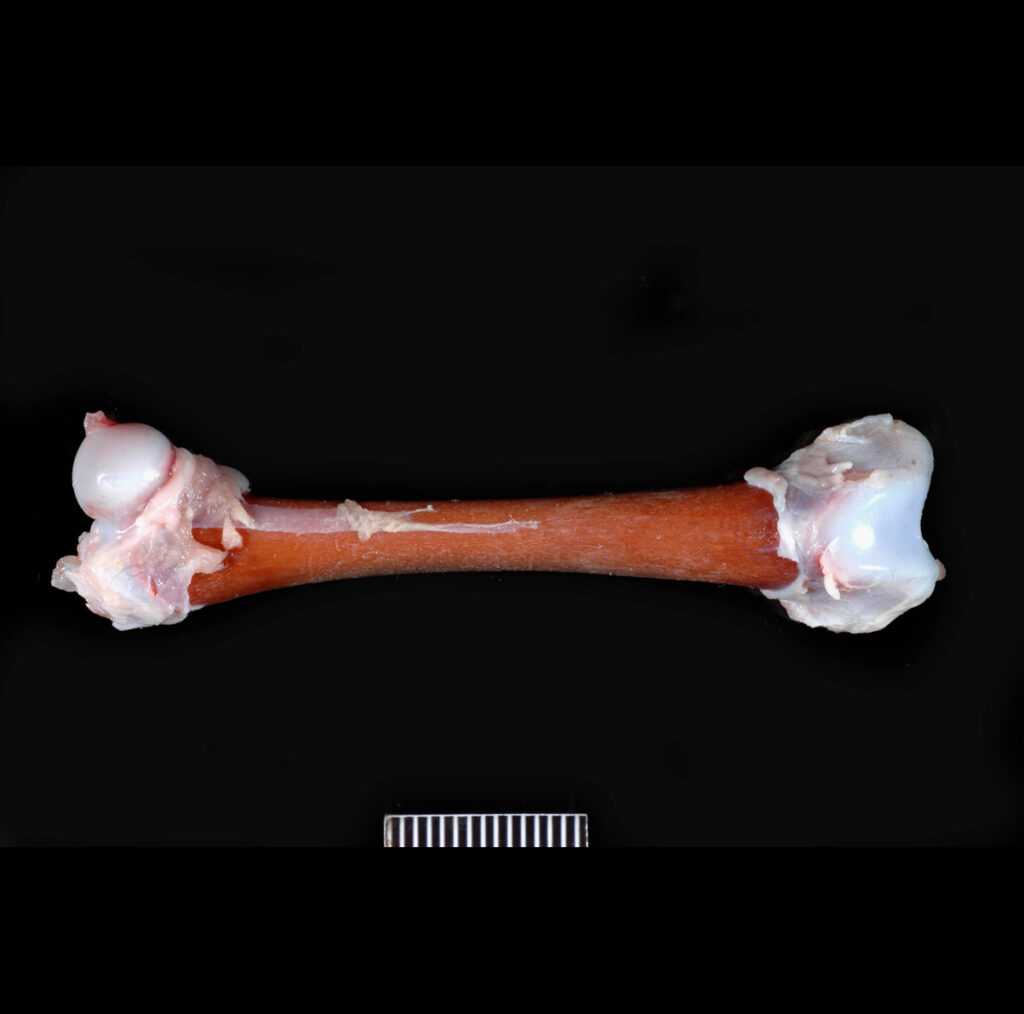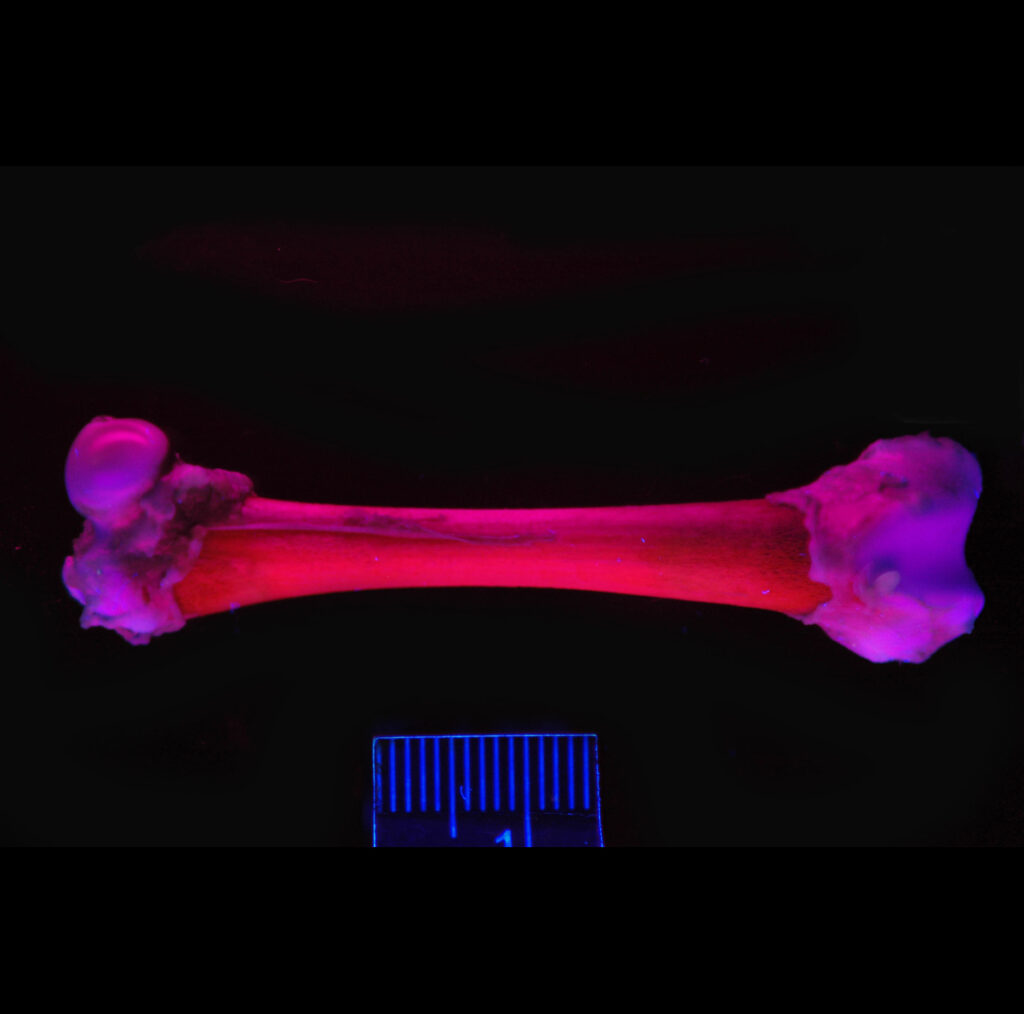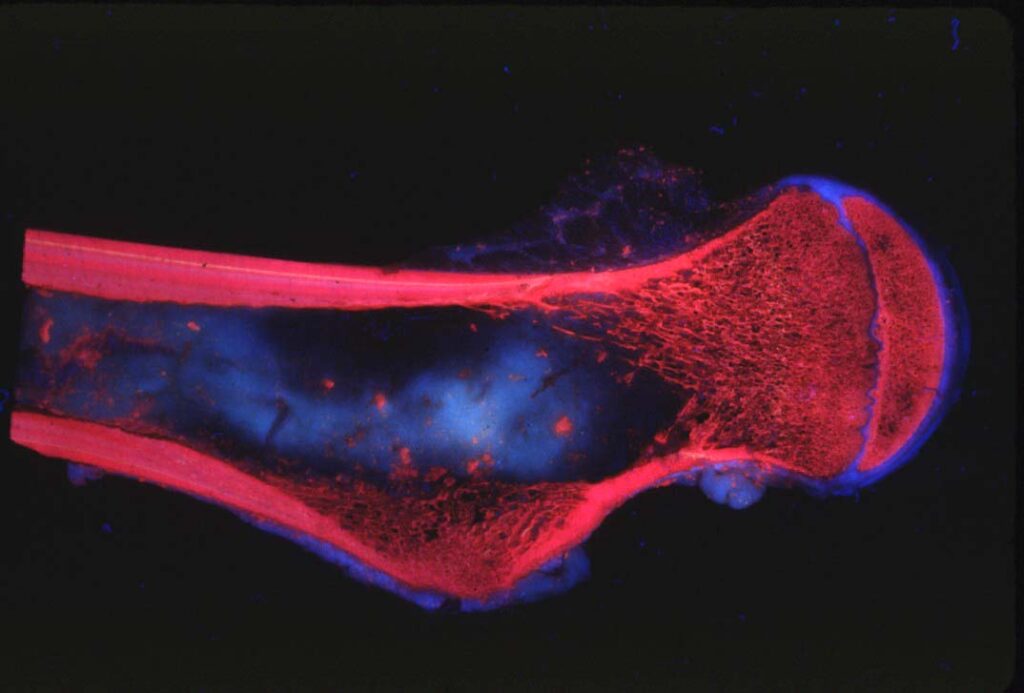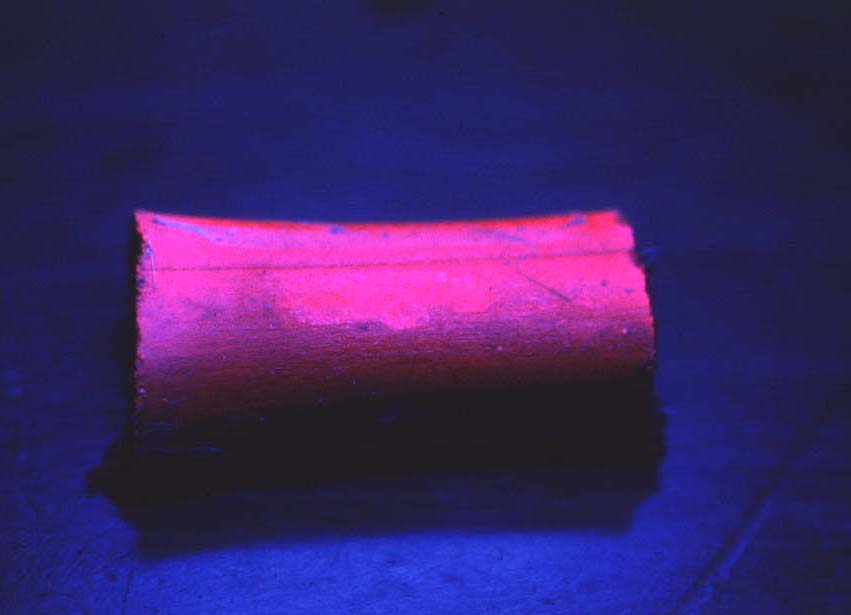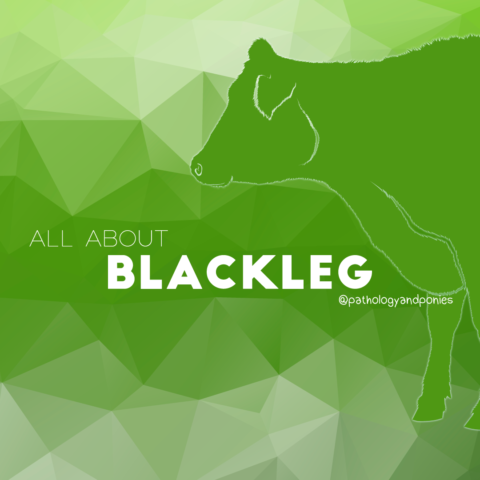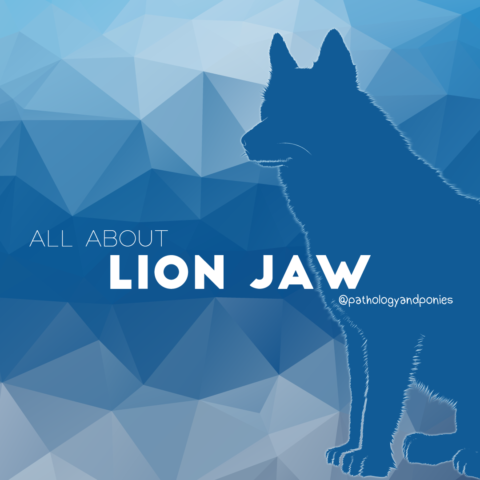Today’s path rounds are on 𝐜𝐨𝐧𝐠𝐞𝐧𝐢𝐭𝐚𝐥 𝐩𝐨𝐫𝐩𝐡𝐲𝐫𝐢𝐚! This post is inspired by a recent post by @clinpathkate on Instagram. It has some great images so go check it out!
𝐖𝐡𝐚𝐭 𝐢𝐬 𝐢𝐭?
𝐂𝐨𝐧𝐠𝐞𝐧𝐢𝐭𝐚𝐥 𝐩𝐨𝐫𝐩𝐡𝐲𝐫𝐢𝐚 is a red to brown discolouration of the bones and teeth, starting from birth, due to the accumulation of 𝐩𝐨𝐫𝐩𝐡𝐲𝐫𝐢𝐧𝐬 (compounds that bind metals, such as heme in red blood cells). The name porphyrin derives from the Greek word prophyra, which means purple, and tells you a bit about what colour these compounds are!
𝐖𝐡𝐨 𝐠𝐞𝐭𝐬 𝐢𝐭?
This condition has primarily been described in several breeds of cattle, but there have also been numerous reports of the condition in cats!
𝐖𝐡𝐚𝐭 𝐜𝐚𝐮𝐬𝐞𝐬 𝐢𝐭?
Most cases of porphyria are congenital, and are caused by a genetic deficiency in the enzyme 𝐮𝐫𝐨𝐩𝐨𝐫𝐩𝐡𝐲𝐫𝐢𝐧 𝐈𝐈𝐈 𝐜𝐨𝐬𝐲𝐧𝐭𝐡𝐞𝐭𝐚𝐬𝐞. This enzyme is part of the heme production pathway, which is made up of different steps of porphyrin processing until it eventually becomes heme. Without this enzyme, one of the steps stops completely, and the porphyrins begin to accumulate in the body. They tend to accumulate in the teeth, bones and urine, producing the reddish-brown tinge.
𝐖𝐡𝐲 𝐢𝐬 𝐭𝐡𝐢𝐬 𝐚 𝐩𝐫𝐨𝐛𝐥𝐞𝐦?
In general, this condition isn’t a huge issue for the animal, and they can live a pretty happy life. However, there are a few unique issues with having a lot of porphyrins floating around!
The first issue is 𝐩𝐡𝐨𝐭𝐨𝐬𝐞𝐧𝐬𝐢𝐭𝐢𝐳𝐚𝐭𝐢𝐨𝐧, or skin that is easily damaged by sunlight. This happens because porphyrins in the skin react with the UV light from the sun, and can cause local damage to tissues. So these critters should be kept out of the sun as much as possible!
The second potential issue is 𝐡𝐞𝐦𝐨𝐥𝐲𝐭𝐢𝐜 𝐚𝐧𝐞𝐦𝐢𝐚, aka destruction of red blood cells. Porphyrin accumulation in red blood cells is directly toxic to them, which can cause their destruction. This can have a whole host of side effects, and generally has a poor prognosis attached to it.
𝐇𝐨𝐰 𝐢𝐬 𝐢𝐭 𝐝𝐢𝐚𝐠𝐧𝐨𝐬𝐞𝐝?
The best way to diagnose this condition is UV light! When exposed to a black light, the bones will glow pink due to the interactions of the purpley porphyrins and the UV light. Crazy!
𝐏𝐡𝐨𝐭𝐨𝐬
1) Comparison of the femur of a cat with congenital porphyria (top) to a normal cat femur.
2-3) A femur with congenital porphyria under normal light and UV light!
4-5) More examples of pink bones!
𝐒𝐨𝐮𝐫𝐜𝐞𝐬
Maxie, G. Jubb, Kennedy and Palmer’s Pathology of Domestic Animals, Volume 1. Sixth Edition.
Photos 1-5 courtesy of Noah’s Arkive.

